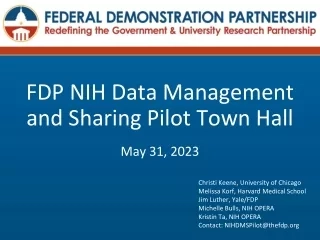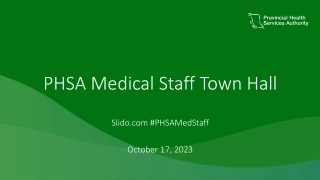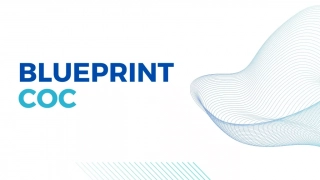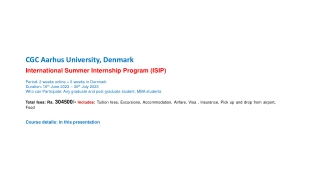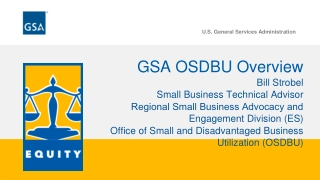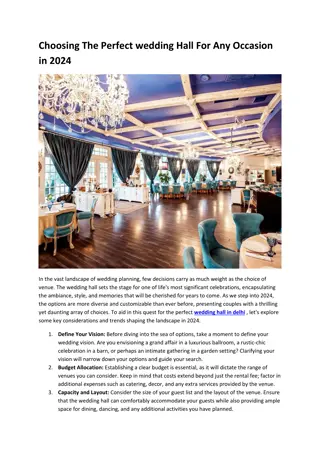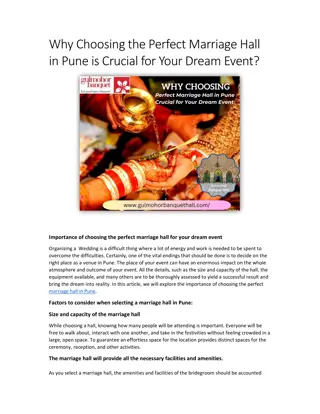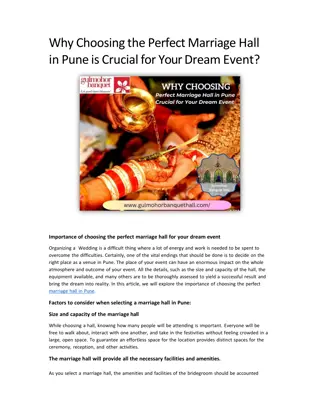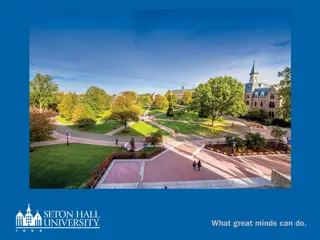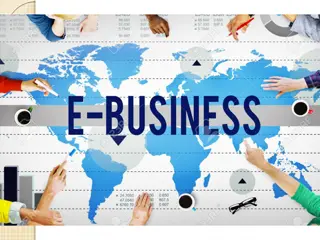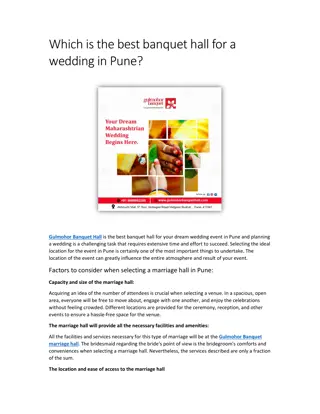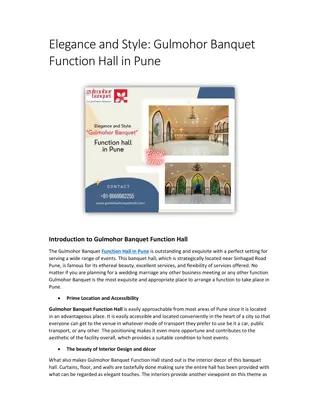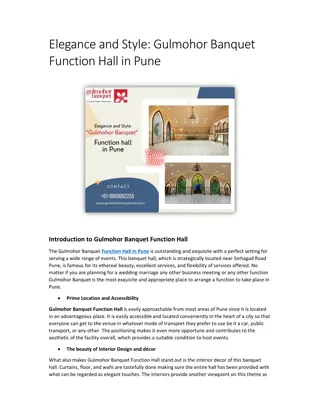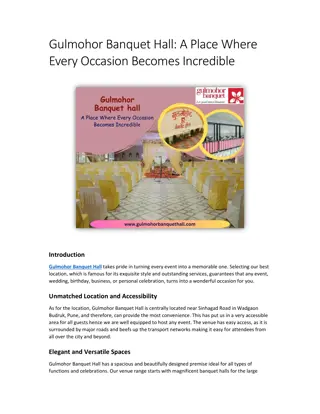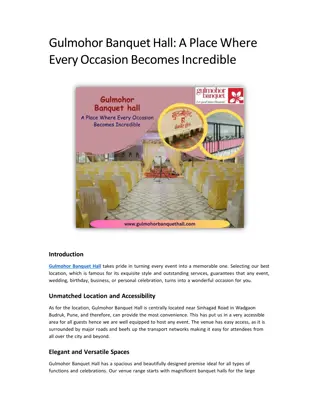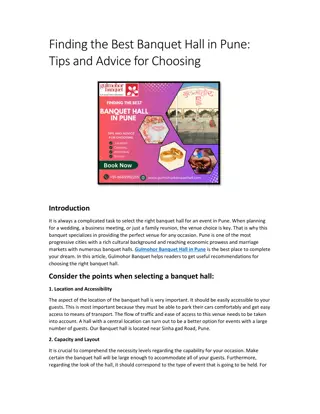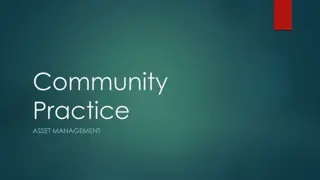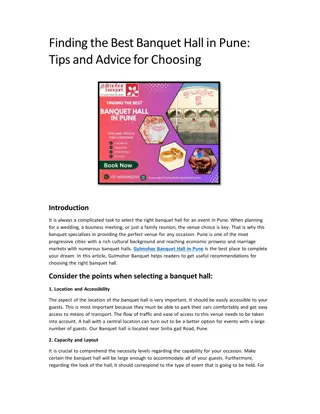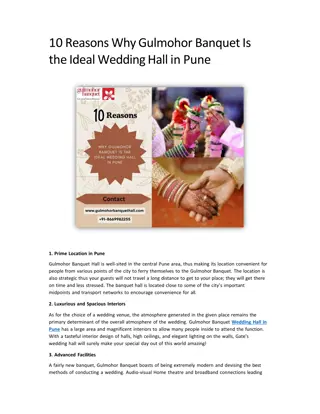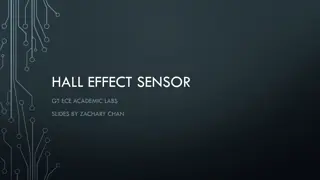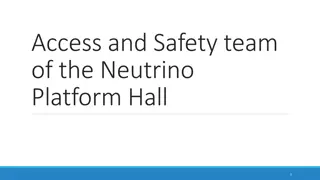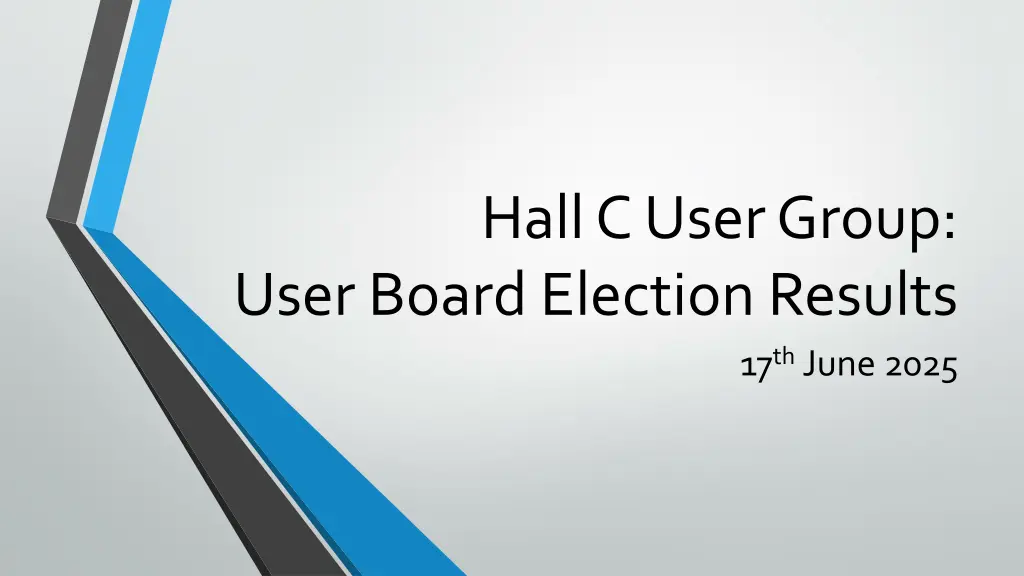
Hall C User Board Election Results and Proposed Bylaws Updates
"Get the latest updates from the Hall C User Group, including the results of the User Board election and proposed updates to the bylaws. Discover the newly elected board members and the recommendations for good standing in the community. Stay informed about shifts scheduling and more. Learn how the outgoing members will be replaced and the key changes proposed for better community engagement. Stay abreast of the latest developments in the Hall C community."
Uploaded on | 1 Views
Download Presentation

Please find below an Image/Link to download the presentation.
The content on the website is provided AS IS for your information and personal use only. It may not be sold, licensed, or shared on other websites without obtaining consent from the author. If you encounter any issues during the download, it is possible that the publisher has removed the file from their server.
You are allowed to download the files provided on this website for personal or commercial use, subject to the condition that they are used lawfully. All files are the property of their respective owners.
The content on the website is provided AS IS for your information and personal use only. It may not be sold, licensed, or shared on other websites without obtaining consent from the author.
E N D
Presentation Transcript
Hall C User Group: User Board Election Results 17thJune 2025
Election Results 69 votes out of 151 users Very close result, thank you to all of the nominated candidates And thank you to all of the voters! Of the 5 candidates, the following two received the most votes and have agreed to take up a position on the User Board: Debaditya Biswas (Virginia Tech) Dien Nguyen (University of Tennessee)
Outgoing Members The two newly elected members replace: Stephen Kay (University of York) Marie Boer (Virginia Tech) These members will rotate out at the next meeting of the User Board
Hall C User Group: Proposed Bylaws Updates 17thJune 2025
Proposed Updates 1. Additional recommendation for good standing in the Hall C community Related to shift scheduling/taking 2. Elections Codification of User Board election process As a reminder with proposed changes, we are not a collaboration. Generally, we cannot enforce rules. Rather, we comment upon expectations of the user group. Current bylaws - https://hallcweb.jlab.org/DocDB/0012/001233/001/HallCByLawsCoC_final.pdf
1. Shift Scheduling During current run, shift takers noticed that cancelled shifts were no longer counting for shift credit This was not the case previously Unclear if this was intentional, or something changed in shift scheduler In signing up for shifts, users have often already made significant contributions of their time and resources This is true whether people have travelled to the lab from afar or not As such, we propose an addition to the bylaws to reflect this contribution
1. Shift Scheduling Propose adding this to the existing bylaws under: I. Recommendations for good standing in our community 5. When signing up for shifts, users are committing their time and resources to assist on an experiment. This contribution should be recognised by experimental spokespeople, even if unforeseen circumstances lead to shifts being cancelled. We strongly encourage that any shifts that are cancelled less than 8 weeks in advance still count for fullcredit when determining eligibility for authorship on experiments. We also encourage spokespeople to set out their stance on credit for cancelled shifts prominently on the shift signup page, especially if it deviates from this recommendation. Note, this could also be inserted directly below recommendation 2 which discusses shifts (therefore shunting other recommendations down).
2. User Board Elections Currently, the bylaws have the following to say on elections The UB consists of six members elected for a period of (3) three years in staggered terms. The UB shall have two new individuals elected annually by the members of the Organization as Board Members, to replace Board Members who retire from office at the time of such election. Any member of the user organization can nominate candidates. Members that agree to be nominated and run for election will be asked to provide a brief candidate statement. The election will be conducted by email: a reasonable number of candidates will be proposed by the UB, and members may vote for their favorite candidates.
2. User Board Elections Statement is open to interpretation, no strict requirement on format of election for example During recent election, comment was received with regards to interpretation of this section as it relates to conducting the vote Namely, concern was raised that the vote required the selection of two candidates from the available list Voting for one (or zero) candidates was not allowed This was chosen deliberately by the board member organising the election due to their interpretation that two candidates need to be replaced
2. User Board Elections Propose two potential changes: 1. The election will be run by the UB secretary and conducted by email: a reasonable number of candidates will be proposed by the UB, and members may vote for their favorite candidates. The final format and conduct of the election is at the discretion of the UB secretary. 2. The election will be conducted by email: a reasonable number of candidates will be proposed by the UB, and members may vote for their favorite candidates. The election will be held in such a format that users may vote for up to two candidates. Users may elect to only cast a vote in favour of one candidate or none at all should they choose to do so.
As a reminder The bylaws of the Organization may be repealed or amended from time to time by a bylaw or a new by-law, by a majority of the UB and sanctioned by an affirmative vote of at least 2/3 of the votes cast in favor of the by-law by the members by email
Hall C User Group: Working Group Updates 17th June 2025
Spectrometer Performance and Future Upgrades Stephen Kay Main activity remains the Quarterly Analysis Meetings Next meeting July 9th! DocDB Page here! As a reminder, you do not need to be on the User Board to run a working group! I will keep running the QAM (for now) even though I m rotating off the board this year A quick rundown of this year s quarterly meetings
Spectrometer Performance and Future Upgrades Stephen Kay Quarterly Analysis Meeting VIII Overview of the BCM calibration procedure from Nathan Heinrich Quarterly Analysis Meeting IX DC and tracking updates from Mark Jones Hall C computers update from Hanjie Liu Analysis Pipeline k-Analysis Manager Proof of Concept from Casey Morean
Spectrometer Performance and Future Upgrades Stephen Kay Quarterly Analysis Meeting X SHMS Proton Absorption Geant4 from Alicia Postuma Beam Energy Calibration for NPS from Christine Ploen Deuteron-Electro-Disintegration Experiment Analysis HeeP Elastics Update from Pramila Pokhrel As a reminder, all meetings are recorded and I take notes Available via the DocDB Can click the link for each QAM heading if you download these slides!
Spectrometer Performance and Future Upgrades Stephen Kay Last but not least, the SHMS NIM paper! Available on the arXiv now Prepping for submission to NIM:A
Tanja Horn, CUA AI4HallC Working Group Overview AI/ML has become ubiquitous in nuclear physics in the last few years and new possibilities have been emerging. This is an opportune time for Hall C to take advantage of these developments in computing technologies and statistical methods and define its path forward. The main goal of the Hall C AI/ML Working Group will be to provide a forum for discussion for anyone interested in defining this path, exploring possible applications of AI/ML in Hall C, and connecting to data scientists. Status Main discussion forum are the AI4HallC Meetings three meetings so far where major needs were identified and discussed At the last meeting, several ongoing efforts from the community were presented, e.g., o Computer vision techniques, LLMs, and unsupervised learning applied to HC data. o Implementation of Hydra in Hall C o Jupyter notebook tutorial Next meeting: planned for later this year Hydra User Guide
Tanja Horn, CUA AI4HallC Working Group Broader View Ongoing and Prospective Areas of AI that might be of interest to Hall C members AI and Lattice QCD: The Theory Center, a leader in Lattice QCD, is actively addressing the critical slowing- down of Lattice QCD simulations through AI. Supported by SciDAC and leveraging Exascale Computing, these efforts have the potential to substantially improve the accuracy of Lattice QCD simulations. AI-Assisted Detector Design (AID2E): The ePIC detector at the upcoming Electron-Ion Collider might be the first detector using AI for design, construction, and operation. The AID(2)E collaboration addresses currently the use of AI to aide to the detector design. Quantum Chromodynamics Nuclear Tomography (QuantOM): aims to analyze data from Deep Inelastic Scattering (DIS) experiments conducted at Jefferson Lab and the upcoming Electron Ion Collider. The DIS data analysis is performed on an event-level by leveraging nuclear theory models and accounting for experimental conditions. EXCLusives with AI and Machine learning (EXCLAIM): the main goal is to develop a framework to implement AI/ML techniques emerging from the phenomenology of high energy exclusive scattering processes from nucleons and nuclei. Femtoscale imaging: anticipated opportunity in strategic areas of AI at JLab o Femtoscale imaging of quarks, gluons, and their interactions at CEBAF and the upcoming EIC. o Applying AI to the unique challenges of Nuclear Physics, including multidimensional correlations within vast datasets, will advance core AI methodologies and benefit other sciences and society. o Possibly new opportunities in hadron structure visualization/intuition building?

